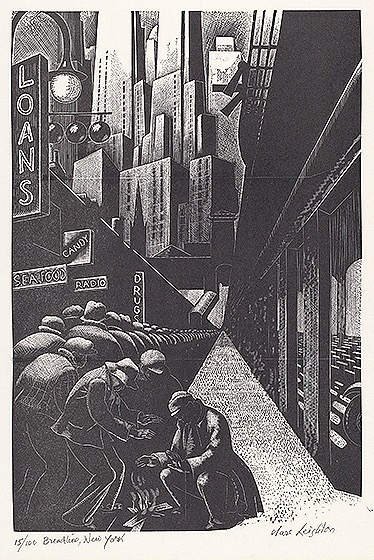HardLabor

Walker Evans, The Breadline, 1933
"You're just the care-giver."
The hardest work I've ever done didn't look like HardLabor. No muscle straining resulted. It was not accomplished beneath an unforgiving sun. Nor was it undertaken under the threat of a gun bull's steely eye, and not to take anything away from all those who have suffered so, I didn't really know I was laboring hard until I was somewhere into the middle of the effort, already having bitten off more than I might reasonably chew, and destined to one day swallow. Divorce was harder than bucking bales. Quitting cigarettes nearly killed me, but quietly, in the most nerve-wracking way imaginable before then. Losing dear friends hurt worse than my muscle groups ever have. Recovering from trauma punishes more than the original trama ever thought to punish. Helping another recover from trauma seems even harder than recovering from trauma since the work's necessarily arm's length and guided by unreliable supervisors. Progress seems unlikely for the longest time.
HardLabor seems fueled by faith, a firm yet quivering belief that the effort might one day seem worth it. Trauma leaves syndromes and dysfunctions which elicit little empathy when they appear. They seem like bull-headed manifestations of willful disrespect. They are not lovable. They are also not the person who demonstrates them, but behaviors emanating from them; not who they are but what they do. Their books cannot be understood by glancing at the cover art, and must be painstakingly read and re-read though the story ages poorly. It will not be simply left behind. Every page turned might need turning a hundred, even a thousand times, with fresh nuance and greater understanding possible every damned time. The stories start out circular, perfectly self-sealing. They lead precisely to where they take you, but with repetition, they tend to lose their true and might eventually renew rather than insistently reinforce. Tell the stories again and again and listen carefully every time. If success ever emerges, only time will tell.
They need more attention than you thought you owned. You'll find it anyway. They demand more understanding than you understood yourself to possess. Give it anyway. The process might never become give and take, remaining asymmetric, crooked and unfair, with them getting more than their fair share, which seems only fair. You have to love what happens there though little of it seems very lovable. Patience and then more patience, and then even more piled upon what you already expended. Full recovery might be a myth and cannot serve as a useful success metric. The one who experienced the trauma no longer exists and digging them up won't produce anything but zombie results. Coping needs learning to counteract memories which cannot simply be discarded. A trigger happens and transports the traumatized back to that originating sensory experience again, each time with perhaps a smidge better coping strategy. Stumbles far outnumber successes and progress sometimes seems unimaginable; glimpses fill in for now.
HardLabor's of indeterminate duration; no nine-to-five, punch clock effort. Any day, any time, some fresh agony might visit and demand empathic attention. There's very little anyone can do except face it. The process just needs carrying through however unpromising the results so far. That said, good days follow bad ones, like bad days follow good. It's a rollercoaster ride of great uncertainty, demanding ever more faith and persistence. If only a Big Fucking Hammer could fix it. If only a little more umph would nudge it over an edge, but it's subtle and cerebral HardLabor which leaves you feeling stupid some days and wise on others. It demands a caring hand and a supportively critical eye. It seeks the truth but will first bite every hand producing it. Everyone wants HardLabor to just go away, but it stays. It stays for an indeterminate duration, endlessly hungry for more. However exhausted you feel, it's fixing to strike again. An anxiety attack without good reason. A night terror with no clear cause. An exhausting string of interruptions. It's much worse for them. You're just helping. They experience the actual pain. You're just the care-giver.
©2020 by David A. Schmaltz - all rights reserved


